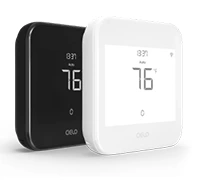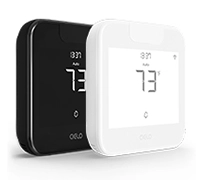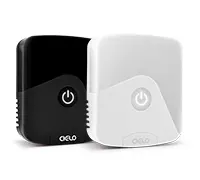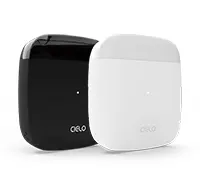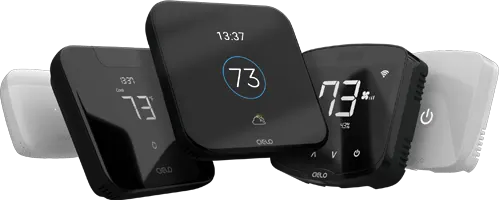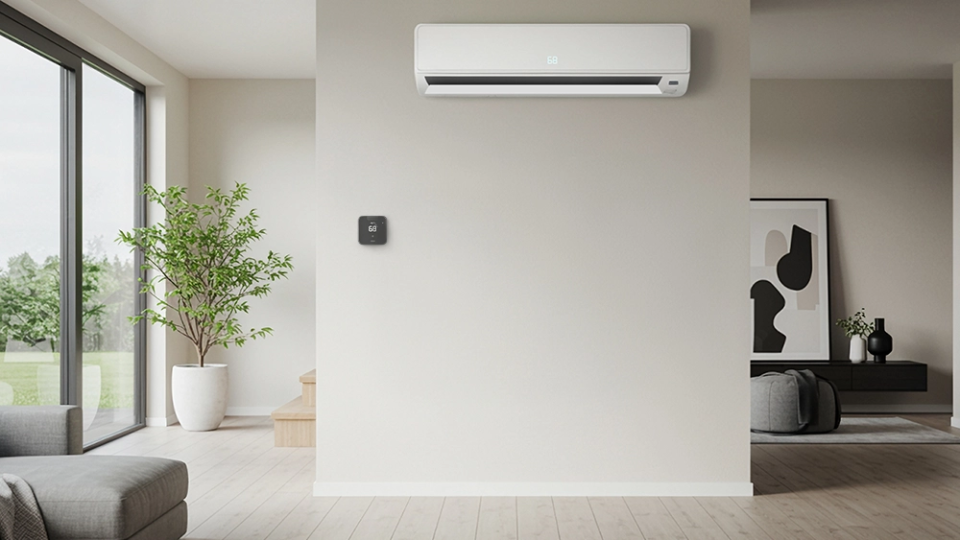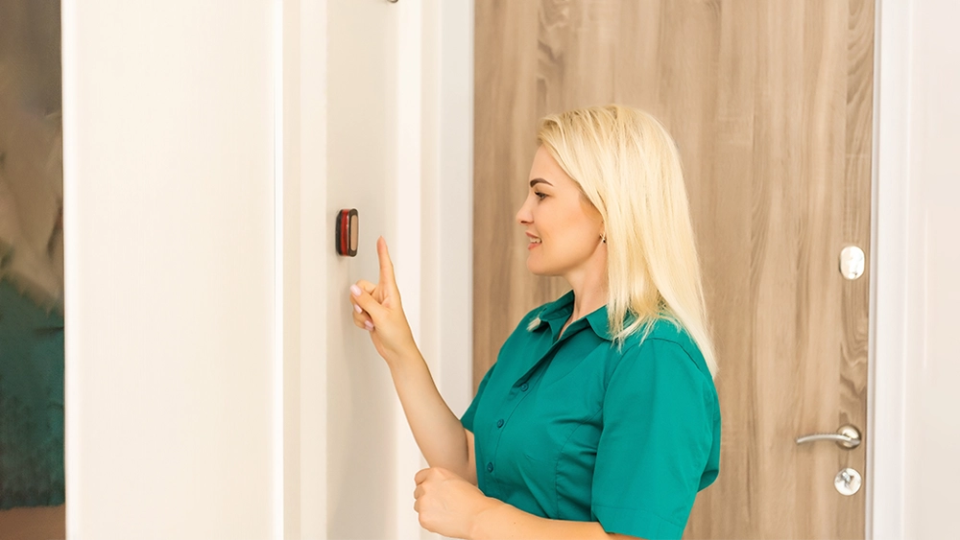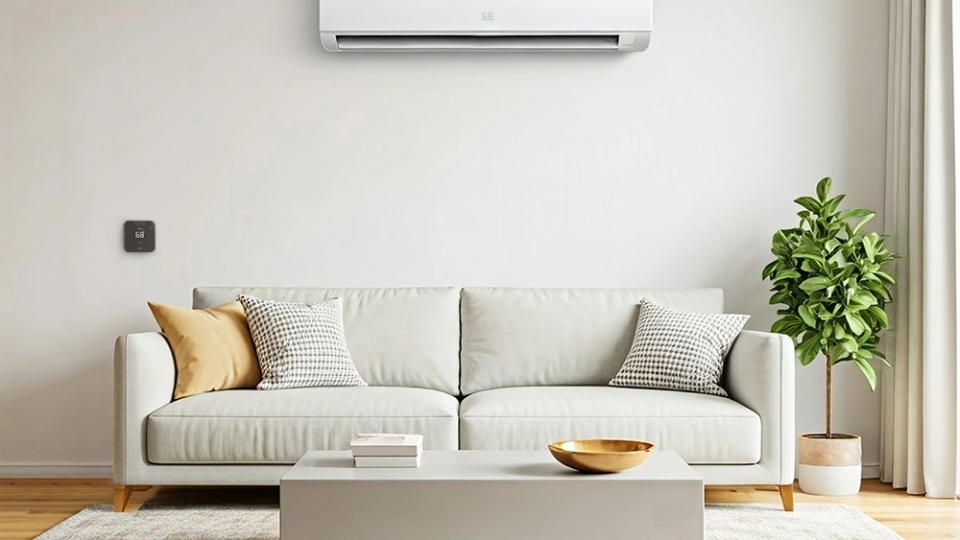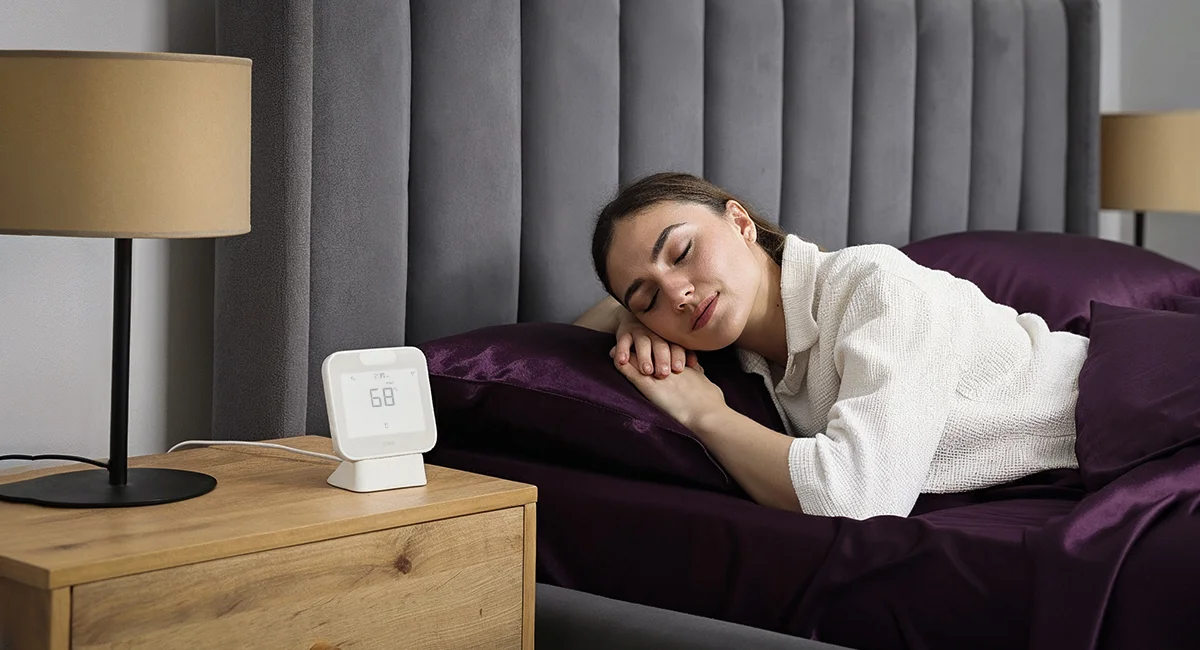
Key Takeaways
- Regularly cleaning and replacing your air filters helps your AC work better.
- Blocking direct sunlight with blinds can reduce indoor heat gain, easing your AC’s cooling load.
- Smart thermostats automate your home climate and boost your air conditioner’s efficiency.
With soaring temperatures across the globe, keeping your home cool can get tricky. Maintaining optimal home temperature requires more than just flipping the switch of your air conditioner.
Fortunately, there are tips and strategies you can employ to maximize cooling from your AC without breaking the bank. From regular maintenance to investing in smart climate control products, this blog will explore the top 12 strategies to make your AC work better during the hot summer months.
- 1. Maintain Air Filter Cleanliness
- 2. Invest in a Smart Thermostat for Central Home Cooling
- 3. Invest in a Smart Thermostat for Room Units
- 4. Avoid Direct Sunlight Entering the Room
- 5. Insulate Your Home
- 6. Choose the Right AC Size
- 7. Focus on Preventative HVAC Maintenance
- 8. Clean the Condenser Unit Outside
- 9. Keep the Drain System Clean
- 10. Pay Attention to Your Thermostat Placement
- 11. Seal Your Ductwork
- 12. Vacuum Your Vents
- Tried-and-Tested Ways to Enhance AC Performance
1. Maintain Air Filter Cleanliness
Air filters are essential to your air conditioner’s ability to remove contaminants from the air and to function at peak performance. Dust, grime, and other airborne particles are trapped by the filters before they can enter the system and be distributed throughout your home.
However, the filters can become clogged with debris over time. When this happens, your AC has to work harder to maintain your desired temperature, which can result in reduced cooling efficiency and higher energy bills.
Hence, cleaning the filters every 2 weeks and replacing them every 3-4 months is imperative. There are different types of air filters in the market. Picking the right one will also help to make your AC work better depending on your needs.
2. Invest in a Smart Thermostat for Central Home Cooling
A smart thermostat for central HVAC units can result in significant cost savings, increased convenience, and a comfortable living environment. Smart thermostats allow you to create personalized heating/cooling according to your daily routine. Once you have set your schedules, the smart thermostat will automatically implement your settings, helping your AC run efficiently.
Smart thermostats can also detect whether you are home or not and automatically adjust your settings. When you leave, the thermostat will quickly adapt and reduce AC usage to help you save money on your energy bills. When you return, the thermostat will adjust your settings to ensure your living space is comfortable again.
Equip your HVAC system with smart features and achieve the perfect balance between comfort & savings.
Learn more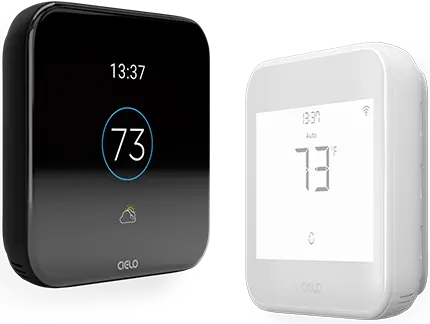
They can be integrated with other smart home devices, such as voice assistants and home automation systems. This allows for even greater control and automation of your home’s climate, further optimizing energy usage and increasing convenience.
3. Invest in a Smart Thermostat for Room Units
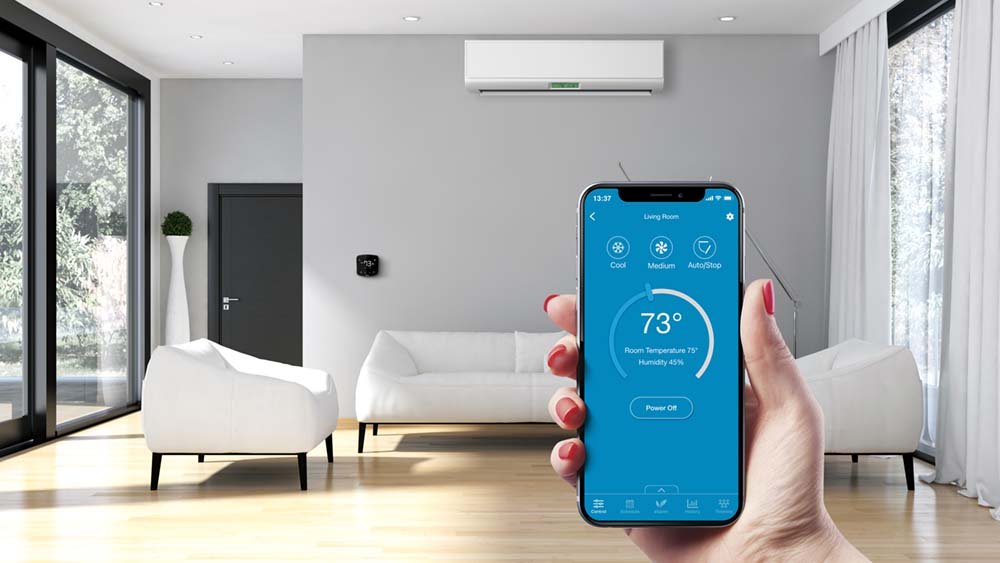
Smart thermostats for ductless air conditioners like mini-splits or window units are helpful because they provide a high level of control and flexibility in managing individual rooms’ temperature and energy usage. These smart climate control devices allow you to control your AC using a phone and equip it with various smart features that enhance your aircon’s efficiency.
Your best choice to make any mini-split, window,
or portable AC smart. Enhance your comfort and savings.
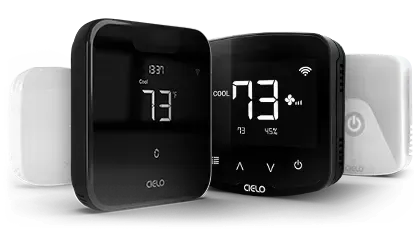
They help your unit to cool better and reduce AC costs by allowing you to set customized schedules for each room and making sure that your unit will only be running when needed.
Furthermore, using the geofencing mode, you can have the unit off when no one’s home and have it automatically turn back on before your arrival.
Cielo Breez mini-split thermostats also notify you when it’s time to clean up your AC filters. This does wonders for the health of your air conditioning system.
4. Avoid Direct Sunlight Entering the Room
If direct sunlight falls on your room, it can be a challenge for the AC to cool down that area. To make sure your cooling system runs optimally and effectively, try closing the blinds to block the heat.
It’s best to do that early in the day so you can reduce the amount of heat entering inside. Similarly, planting trees to block out the direct sun rays also helps cool down your living space.
5. Insulate Your Home
Home insulation creates a barrier between the indoor and outdoor environment, which helps reduce the amount of heat that enters or leaves the room. This can be achieved by insulating walls, ceilings, floors, and doors with materials such as fiberglass, foam, or cellulose.
When a room is well insulated, the cool air produced by the system stays within the room for longer, allowing your AC to cycle on and off less frequently. This makes your AC work better and even helps to extend AC lifespan. Plus, it can also help you save up to 15% on heating/cooling costs.
6. Choose the Right AC Size
An air conditioner that is larger than required will short cycle every now and then, which means that it will run for a short period and then turn off. In this scenario, the AC unit is unable to adequately remove moisture from the air, which can affect your home climate.
On the other hand, a smaller unit burns more electricity as it keeps running for longer periods trying to achieve your set temperature. Installing the correct AC size will help achieve a comfortable environment and helps to save energy.
7. Focus on Preventative HVAC Maintenance
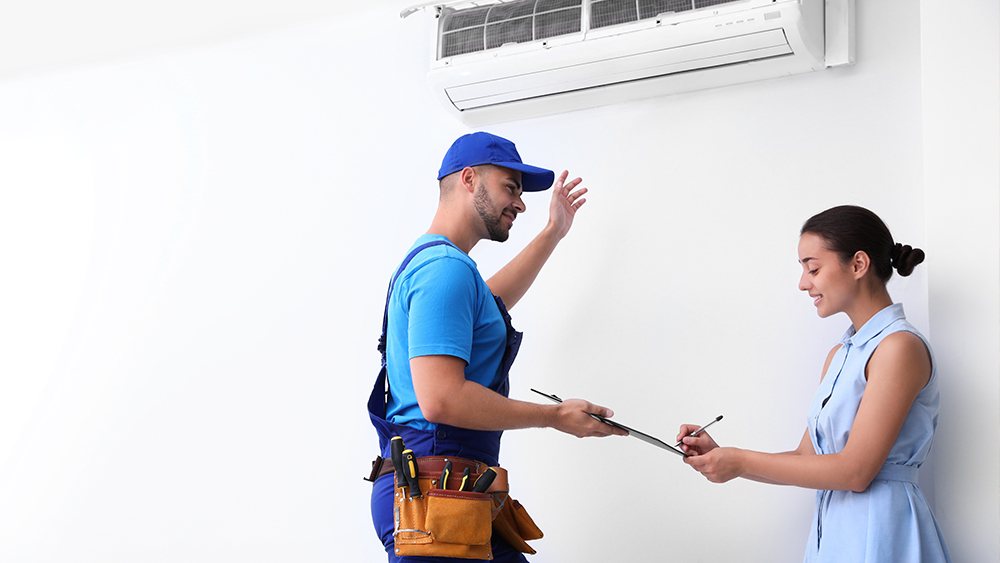 A well-functioning air conditioner is dependent on regular maintenance. The effectiveness of an air conditioner might degrade as its parts get dusty or damaged over time.
A well-functioning air conditioner is dependent on regular maintenance. The effectiveness of an air conditioner might degrade as its parts get dusty or damaged over time.
If you want your AC to cool better, it’s important to focus on regular AC tune-ups. They can increase your unit’s efficiency, prolong the life of the components, and protect it against malfunctions.
8. Clean the Condenser Unit Outside
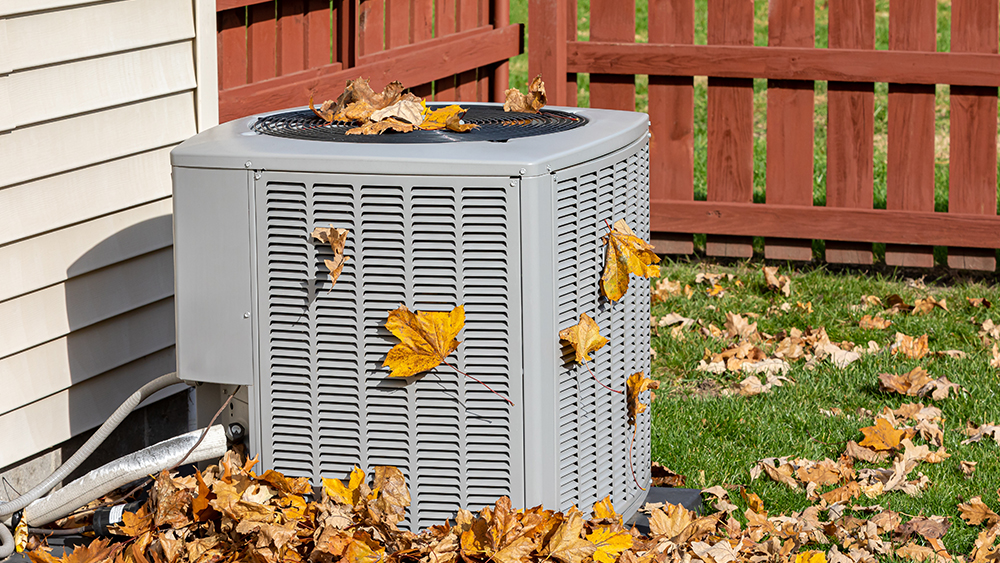 The outdoor unit of an air conditioner is often overlooked, leading to diminished AC efficiency. The outdoor unit needs to release heat efficiently for the AC system to work properly.
The outdoor unit of an air conditioner is often overlooked, leading to diminished AC efficiency. The outdoor unit needs to release heat efficiently for the AC system to work properly.
If the unit is clogged with debris, heat dissipation gets affected, causing the system to overwork. This leads to decreased performance and costly repairs. Make sure to regularly clean the area around the outdoor unit for efficient cooling.
9. Keep the Drain System Clean
The drain system in your HVAC system removes condensation and excess moisture from the system. If the AC drain becomes clogged, it can cause water to accumulate in the system, leading to various issues that can affect its performance. One of the most prevalent problems that might result from a clogged drain is a decrease in cooling efficiency.
This happens because your unit has to work harder than usual, resulting in increased strain on the unit and high electricity bills. Plus, your unit won’t be able to adequately remove moisture from the air, leading to high humidity levels. Here’s how to maintain ideal humidity levels in summer.
Mold and bacteria can flourish in a drain that is not flowing freely, which can have an adverse effect on your indoor air quality and lead to unpleasant odors. Furthermore, these impurities can damage the AC unit, leading to even more performance concerns.
10. Pay Attention to Your Thermostat Placement
The placement of your thermostat can drastically affect the efficacy and performance of your air conditioning system. It is important to ensure that it’s not too close to a heat source such as direct sunlight, lamps, or electric appliances; otherwise, the temperature readings will be inaccurate.
Also, avoid installing it near drafty doors and windows, as this can result in inconsistent readings. Since the thermostat measures your average home temperature, it is recommended to install it in a central area of your home.
Another place that can serve as the best location is the room that you frequently use, such as the living room.
11. Seal Your Ductwork
Leaky ducts can cause certain areas of your home to be cooler or warmer than others, leading to hot spots and cold spots, which can be uncomfortable. Insulating your ductwork can improve the overall comfort of your home by maintaining consistent temperatures throughout the building.
Seal any visible cracks and gaps with aluminum foil tape or apple caulking to cover them. Here’s a detailed guide on how to find duct leaks and fix them.
12. Vacuum Your Vents
When your AC vents are blocked with dirt and debris, it can result in reduced airflow in your home. To ensure maximum AC efficiency, keep your indoor vents free from dust and debris.
Inspect all the vents in your home and clean them using a vacuum. Also, remove any items, such as furniture pieces, so that they don’t block the airflow coming out of your HVAC unit.
Related: HVAC Airflow Problems: 12 Common Causes & How to Fix Them
Tried-and-Tested Ways to Enhance AC Performance
Enhancing your air conditioner’s effectiveness will not only bring immediate comfort in these hot summer months, but it can also save money on air conditioning costs. There are plenty of ways to get your AC to work better without spending too much. So don’t let the season get to you —take action now and beat the heat like a pro!
